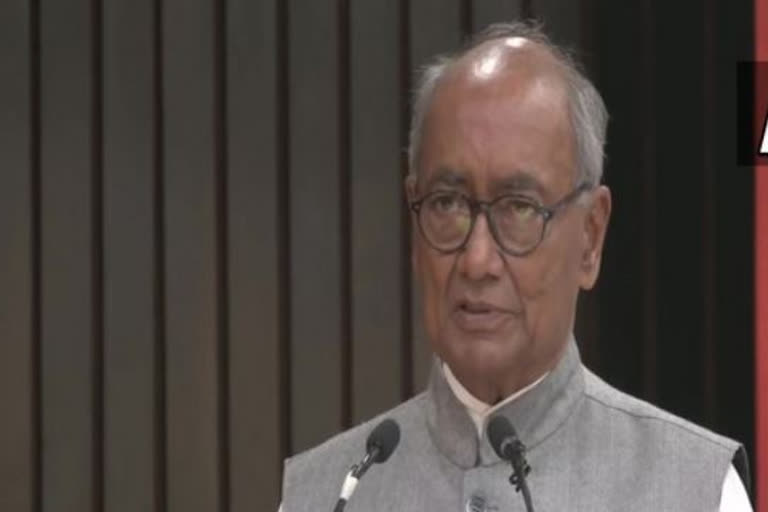New Delhi: Congress leader Digvijaya Singh on Wednesday said Bharatiya Janata Party (BJP) made Ram Janmbhoomi dispute a national issue because former Prime Minister Atal Bihari Vajpayee's "Gandhian socialism failed in 1984".
Singh was speaking at the launch of former union minister and Congress leader Salman Khurshid's book on the Ayodhya verdict, on Wednesday in the national capital.
Addressing the event, Singh said, "When they (BJP) remained confined to just 2 seats in 1984, they decided to make this a national issue (Ram Janmbhoomi dispute) because Atal Bihari Vajpayee's Gandhian socialism failed in 1984. So, they were forced to walk the path of hardcore fanatic religious fundamentalism for which Rashtriya Swayamsevak Sangh and its ideology is known. Advani ji's yatra was the one that divided society. He sowed seeds of hatred wherever he went."
Mentioning Veer Savarkar, Singh further alleged that Savarkar brought the word 'Hindutva' that confused people. "Hindutva has nothing to do with Hinduism. Savarkar was not religious. He had said why is cow considered 'maata' and had no problem in consuming beef. He brought 'Hindutva' word to establish Hindu identity which caused confusion in people," added the Congress leader.
Salman Khurshid on Tuesday said that it was his responsibility to explain the verdict of a Court to whom he was once associated.
Speaking to ANI, Khurshid said, "People used to think that it will take 100 years for the verdict to come. After the verdict, people started giving opinions perhaps without reading it or understanding that what, why or how did Supreme Court give the judgement."
"So, it was my responsibility to explain the verdict of a Court I am associated with. I agreed it is a very good judgement, a way of applying ointment to the situation we have in the nation today and an attempt to ensure that something like this does not happen again," he said.
The Supreme Court in its order on November 9, 2019, directed the central government to hand over the 2.77 acres of disputed land to a trust, set up for the construction and management of a Ram temple.
A five-judge Constitution bench presided by the then Chief Justice of India Ranjan Gogoi had also directed that a suitable plot of land admeasuring five acres be handed over to the Sunni Central Waqf Board granting it the liberty to construct a mosque at the alternate site.
ANI



